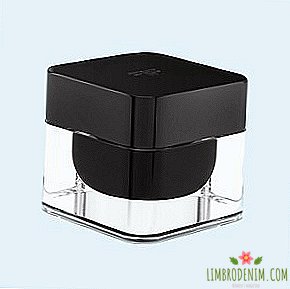Is it true probiotics improve digestion
Text: Marianna Mirzoyan
Thanks to advertising yoghurts, nutritional supplements and non-prescription drugs we all know about the existence of "beneficial" bacteria - probiotics. They improve digestion, restore the intestinal microflora, treat for dysbiosis, help with acne and also protect against colds, "improving immunity." Sounds too good to be true? Together with the infectious disease specialist Dmitry Troshchansky, we understand whether probiotics really help to get rid of a variety of health problems.
Systematically assessing the effectiveness of probiotics began relatively recently, and the quality of evidence is often so low that in some countries of the European Union for some time it is impossible to use the word "probiotic" in advertising a product without proper permission (no one has received it yet). In the US, probiotics do not belong to drugs, but to food additives, and a number of studies show that the composition of many probiotic drugs does not correspond to the information indicated on the label.
About 150 over-the-counter drugs and probiotic supplements are sold in Russian pharmacies. According to experts, last year these funds were sold for about $ 150 million. In our country, probiotics are often prescribed for dysbacteriosis. This is done so that "in the intestine lactic acid bacteria multiply actively and slow down the growth of harmful microorganisms." Many believe that this is the way "natural cleansing of the intestines from harmful bacteria and restoration of natural balance in it". And this, of course, is a delusion. Scientists know that thousands of different bacteria in different combinations are present in different people and it is possible to speak about any norm and natural balance in very, very rare cases. In addition, the diagnosis of "dysbacteriosis" is simply not in the international classification of diseases (ICD-10), which means you need to look for the real cause of the symptoms that the patient complains about.
It seems that the idea of taking probiotics for health promotion has appeared only recently, but in fact it is more than a hundred years old. I offered her the Nobel Prize winner in the field of physiology and medicine Ilya Mechnikov. In adulthood, he studied the mechanisms responsible for aging, and concluded that degenerative changes (such as senile dementia or muscle atrophy) are caused by phagocytic malfunction: putrefactive bacteria release toxins that cause immune cells to transform and attack healthy tissue. Mechnikov proposed resisting premature aging by inhibiting the growth of putrefactive bacteria with the help of lactic acid bacteria. His recipe for health and longevity is simple: daily eat "live" yogurt with sugar or sucrose. The scientist, as far as we know, regularly followed his own recommendations and was very pleased with the results.

Doctors do not consider yogurt to be a necessary part of a healthy diet, but it most likely will not harm people who normally digest it.
To date, there is no evidence that the intake of lactic acid bacteria can slow down the aging process. And modern researchers can only guess what Mechnikov meant, speaking of good results. However, since then, doctors prescribe yogurt for various problems with the intestines, and in 1919 Danone company appeared and began selling yogurt in pharmacies as a medicine. After almost a century, the company will have to agree with multi-million fines for advertising, which stated that a daily portion of yogurt improves digestion and reduces the risk of catching a cold or flu. Today, doctors do not consider yogurt to be a necessary part of a healthy diet, but this product most likely will not harm people who normally digest it.
Trillions of microbes dwell inside and outside a person, different species in different parts of our body. Some of them are harmful, such as the bacterium Streptococcus mutans, which lives in the mouth and causes caries. But with the main part of microorganisms we manage to live in balance. Moreover, many of these crumbs are beneficial. Most microbes are concentrated in the intestines. "From the microbial point of view, our intestines are similar to both New York and some eastern oil capital at the same time - innumerable people and available energy," microbiologist and pediatrician Rob Knight describes this world in his book inside. "
A variety of microbes live in the intestines, but for a long time only those that were easy to grow in the laboratory could be thoroughly studied, analyzed by analyzing feces. Modern DNA sequencing technologies have made it possible to discover many organisms that feel great in our intestines, but cannot survive in the laboratory. And research results suggest that probiotics can be effective for treating specific diseases, but they cannot have any effect on the composition of intestinal bacteria in healthy adults.
Probiotics traditionally include bifidobacteria and lactobacilli, although you can find drugs that include streptococci or E. coli. It is important to understand that different drugs and food additives may contain different types and strains of bacteria (it may be one type or combination), they have different properties and there may be side effects. Ideally, they should be prescribed by the attending physician. This can help the Canadian guide to probiotic supplements, it contains data on products popular in this country.
There is evidence that in adults taking high doses of Lactobacillus GG may slightly reduce the duration of acute infectious diarrhea and reduce the risk of travelers' diarrhea. Lactobacillus Casei Shirota helps patients with chronic constipation. Some probiotics may be recommended for recurrent diarrhea caused by the unrestrained growth of Clostridium difficile bacteria - but only until the patient has no associated diseases. In addition, scientists hope that in the near future, probiotics will help patients with irritable bowel syndrome, lactose intolerance, ulcerative colitis and Crohn's disease. But so far there are only short-term studies, and many of them have serious complaints from experts, so there is no need to talk about any recommendations.
You should not hope that probiotics "will increase immunity", relieve an adult from eczema or prevent the development of allergic reactions, they do not need to be used for bacterial vaginosis and acne. And if you want to save even more, give up buying prebiotics - food for good bacteria. "Prebiotics are effective in a dose of a few grams. Such a quantity cannot be stuffed into capsule tablets. At the same time, in Russia, for example, in France, the sachet form for medicines and dietary supplements is not common, and our existing drugs do not contain the required number of prebiotics or almost 10-20 capsules a day, ”warns infectiologist Dmitriy Troshchansky. Prebiotics - these are mainly carbohydrates, which are in many vegetables and fruits, buying them in pharmacies is pointless.
Photo: Coprid- stock.adobe.com, F16-ISO100 - stock.adobe.com, khuntapol - stock.adobe.com, Fotofermer - stock.adobe.com






